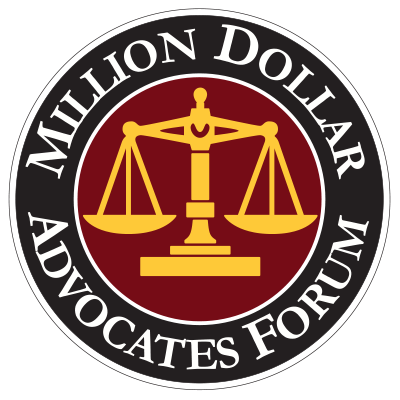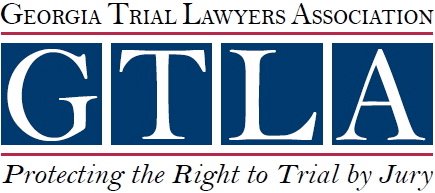When you experience a personal injury accident in Georgia, it can be a life-altering event. The state of Georgia, like any other, has its own unique landscape of personal injury cases. These accidents can arise from a variety of circumstances and can lead to severe physical, emotional, and financial consequences. Understanding the common types of personal injury accidents and their legal implications in Georgia is crucial for anyone navigating the aftermath of such an incident. Whether you are a victim seeking justice or someone aiming to understand your rights and responsibilities, having knowledge of these accidents and their legal frameworks is essential.




Motor Vehicle Accidents
Motor vehicle accidents are the most common type of personal injury accident in Georgia. Whether it involves cars, trucks, motorcycles, or pedestrians, these accidents can result in significant injuries or even death. The legal implications of motor vehicle accidents are complex and often hinge on the determination of fault. In Georgia, the state operates under a modified comparative negligence rule, which means that if you are found to be partially at fault for the accident, your compensation will be reduced by your percentage of fault. If you are found to be 50% or more at fault, you will not be entitled to any compensation.
The aftermath of a motor vehicle accident often involves interactions with insurance companies, who may try to minimize their payout. Victims of motor vehicle accidents may be entitled to compensation for medical bills, lost wages, pain and suffering, and property damage. However, securing this compensation requires a thorough understanding of Georgia’s traffic laws, the ability to gather evidence, and the negotiation skills to deal with insurance adjusters. Given the stakes involved, it is crucial to approach motor vehicle accident claims with a well-prepared legal strategy.
Slip and Fall Accidents
Slip and fall accidents are another common cause of personal injury claims in Georgia. These accidents typically occur on someone else’s property due to hazardous conditions like wet floors, uneven surfaces, or poor lighting. The legal implications of slip and fall cases fall under the broader category of premises liability. In Georgia, property owners have a duty to maintain their premises in a reasonably safe condition for visitors. If they fail to do so and someone is injured as a result, the property owner may be held liable.
However, proving liability in a slip and fall case is not always straightforward. The injured party must demonstrate that the property owner knew or should have known about the hazardous condition and failed to take appropriate action to fix it. Additionally, the injured party must show that they were not acting carelessly at the time of the accident. Georgia courts will consider factors such as the injured party’s familiarity with the area, the visibility of the hazard, and the length of time the hazard existed. Slip and fall cases often require detailed evidence and testimony to establish liability, making them complex legal battles.
Medical Malpractice
Medical malpractice is a particularly challenging type of personal injury claim in Georgia. These cases arise when a healthcare provider’s negligence results in harm to a patient. Medical malpractice can take many forms, including misdiagnosis, surgical errors, medication mistakes, and birth injuries. The legal implications of medical malpractice are profound, as these cases often involve intricate medical and legal issues.
In Georgia, medical malpractice claims are governed by strict statutes of limitations, meaning that victims have a limited time to file a claim. Additionally, Georgia law requires that an affidavit from a qualified medical professional accompany any medical malpractice lawsuit, stating that the claim has merit. This requirement can be a significant hurdle for victims, as it necessitates securing the support of a medical professional willing to testify against a colleague.
The burden of proof in medical malpractice cases is also substantial. The injured party must show that the healthcare provider’s actions deviated from the accepted standard of care and that this deviation directly caused the injury. Given the complexity of these cases, victims often face an uphill battle in securing the compensation they deserve. However, successful medical malpractice claims can result in compensation for medical expenses, lost income, pain and suffering, and other damages.
Product Liability
Product liability cases in Georgia arise when a consumer is injured by a defective product. These cases can involve a wide range of products, from automobiles and appliances to medications and children’s toys. The legal implications of product liability claims are significant, as they often involve holding large corporations accountable for their products.
Georgia law recognizes three types of product defects: design defects, manufacturing defects, and marketing defects. A design defect exists when a product is inherently unsafe due to its design. A manufacturing defect occurs when a product is safe by design but becomes dangerous due to a flaw in the manufacturing process. A marketing defect involves inadequate warnings or instructions that fail to inform consumers of the product’s risks.
To succeed in a product liability claim, the injured party must demonstrate that the product was defective and that this defect directly caused their injury. Georgia follows a strict liability standard in product liability cases, meaning that the injured party does not need to prove negligence on the part of the manufacturer. However, these cases often involve complex legal and technical issues, making them challenging to pursue.
Workplace Accidents
Workplace accidents are a common cause of personal injury in Georgia, particularly in industries like construction, manufacturing, and transportation. When an employee is injured on the job, they are typically entitled to workers’ compensation benefits. These benefits cover medical expenses, lost wages, and rehabilitation costs. However, workers’ compensation is a no-fault system, meaning that the employee does not need to prove that the employer was negligent to receive benefits.
While workers’ compensation provides crucial support to injured workers, it does not cover non-economic damages like pain and suffering. In some cases, injured workers may have the option to pursue a third-party claim against a party other than their employer. For example, if a defective piece of equipment caused the injury, the worker may be able to file a product liability claim against the manufacturer. Third-party claims can provide additional compensation beyond what is available through workers’ compensation, but they also require navigating complex legal terrain.
Hiring a Personal Injury Attorney How Long Will a Personal Injury Case Take?Related Videos
Dog Bites and Animal Attacks
Dog bites and animal attacks are another common type of personal injury in Georgia. Georgia law holds dog owners liable for injuries caused by their pets if the owner knew the dog had a propensity for aggression or if the owner was negligent in controlling the dog. This legal standard is often referred to as the “one bite rule,” meaning that dog owners may not be held liable for the first bite unless they had reason to believe the dog was dangerous.
In dog bite cases, the injured party must prove that the dog owner failed to exercise reasonable care in preventing the attack. This can involve showing that the owner did not properly restrain the dog or failed to warn others of the dog’s aggressive behavior. Dog bite cases can result in compensation for medical expenses, lost wages, pain and suffering, and other damages. However, they also require a thorough investigation to establish liability and secure fair compensation.
Wrongful Death
Wrongful death claims in Georgia arise when a person dies as a result of someone else’s negligence or intentional actions. These claims can result from various types of accidents, including motor vehicle accidents, medical malpractice, workplace accidents, and criminal acts. The legal implications of wrongful death claims are profound, as they involve seeking justice and compensation for the surviving family members.
Representative Cases
In Georgia, wrongful death claims can be filed by the deceased person’s spouse, children, or parents. The compensation available in these cases can include the deceased person’s medical expenses, funeral costs, lost income, and the value of the deceased person’s life. Wrongful death claims are often emotionally charged and legally complex, requiring a deep understanding of Georgia’s wrongful death statutes and the ability to navigate sensitive issues with care and precision.
If you or a loved one has been injured in any of these common types of personal injury accidents in Georgia, it is crucial to seek legal representation to protect your rights and secure the compensation you deserve. The legal implications of personal injury cases can be complex and challenging to navigate on your own. Princenthal, May & Wilson, LLC is committed to helping victims of personal injury accidents in Georgia. Our experienced attorneys understand the intricacies of Georgia’s personal injury laws and will work tirelessly to build a strong case on your behalf. We will guide you through every step of the legal process, ensuring that your rights are protected and that you receive the compensation you deserve. Contact Princenthal, May & Wilson, LLC today to schedule a consultation and take the first step toward securing the justice you deserve.





